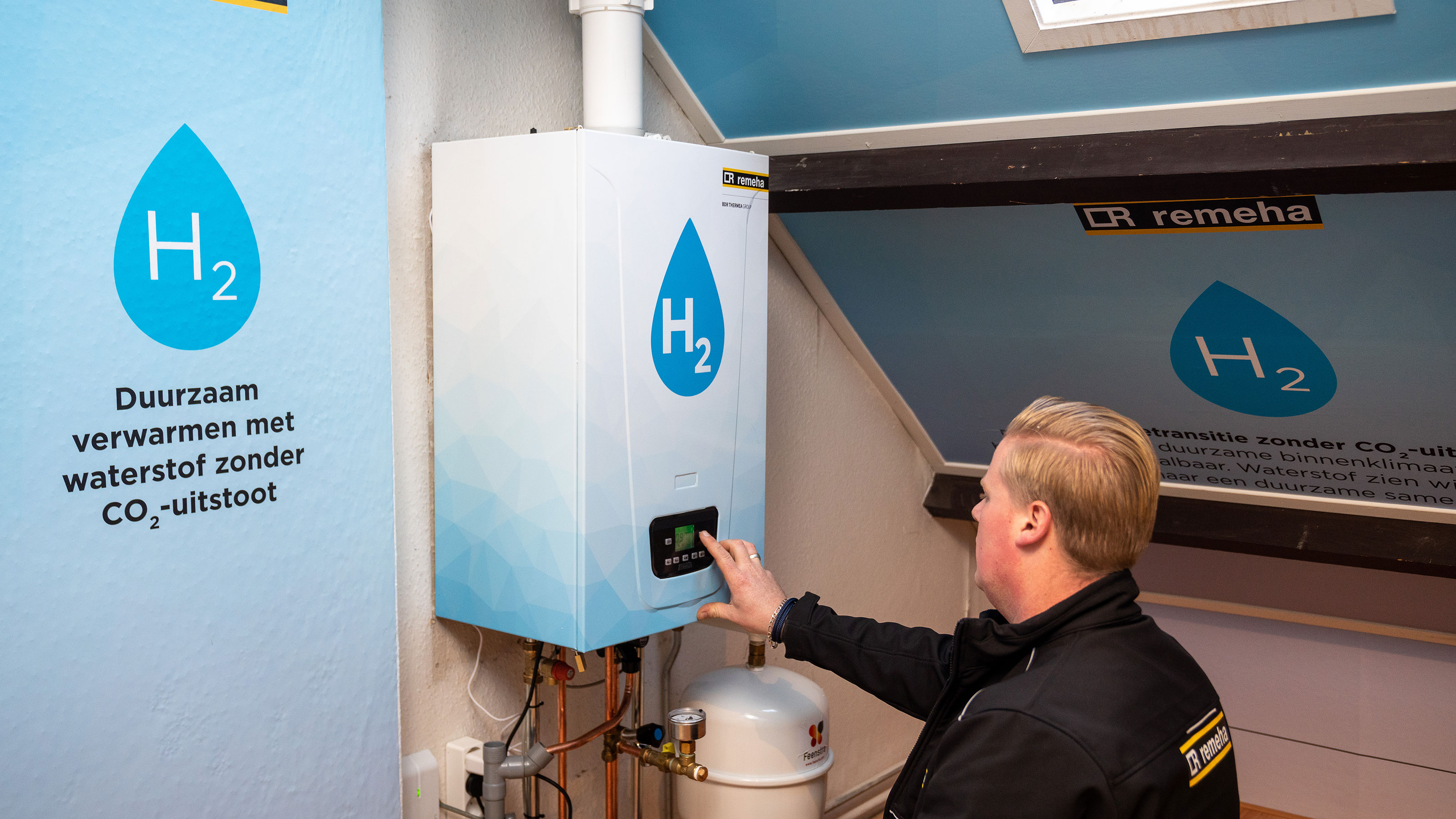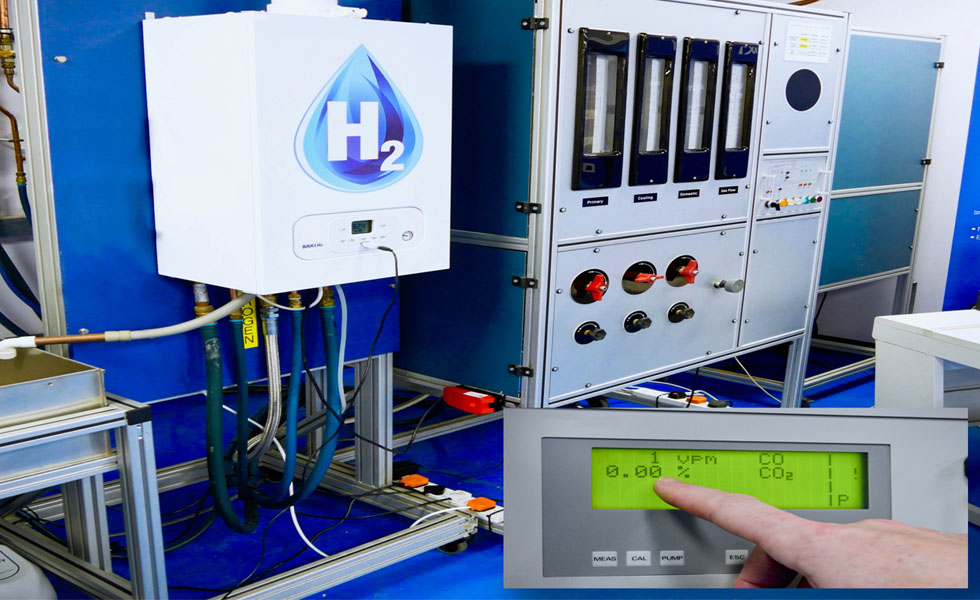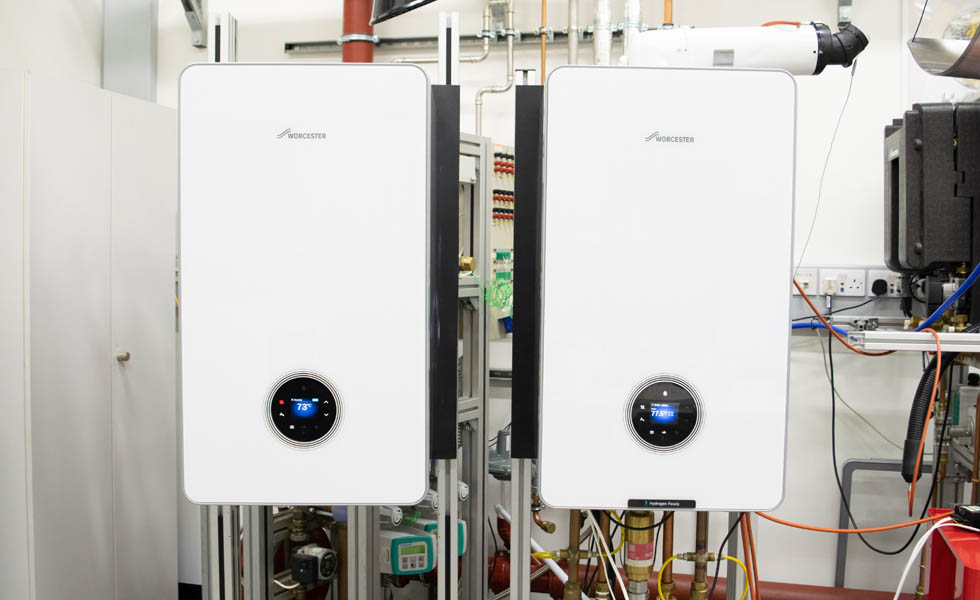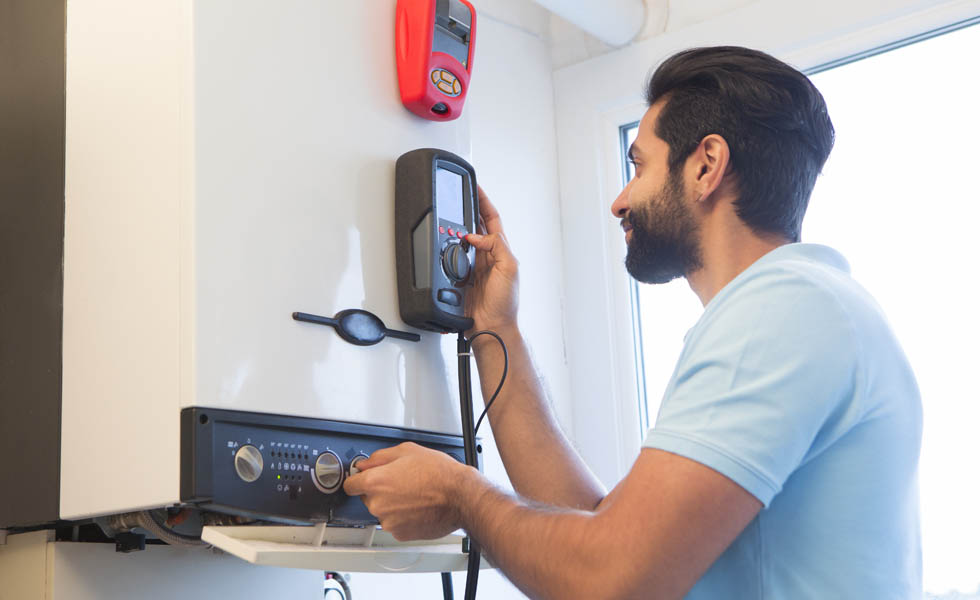When will hydrogen heating be coming to the UK?
Hydrogen heating could be coming to the UK as early as 2026 if the latest hydrogen trial proves a success

Bring your dream home to life with expert advice, how to guides and design inspiration. Sign up for our newsletter and get two free tickets to a Homebuilding & Renovating Show near you.
You are now subscribed
Your newsletter sign-up was successful
As the UK strives to meet its ambitious climate targets, decarbonising the way we heat our homes and workplaces has become a key focus.
Currently, heating accounts for nearly a quarter of the UK's carbon emissions, with around 85% of homes relying on natural gas.
While technologies like heat pumps and heat networks are gaining traction, hydrogen heating is emerging as a potential alternative. But is hydrogen heating a realistic solution for the future? Here's a breakdown of the latest developments and considerations.
What is a hydrogen boiler?
Hydrogen boilers have been developed by manufacturers such as Baxi Heating, Worcester Bosch and Viessmann to run on 100% hydrogen, as well as natural gas.
While 100% boilers are not yet available, hydrogen-ready boilers are available which can run with a hydrogen mix of up to 20%. These boilers will enable a smooth transition to hydrogen when hydrogen is introduced to the UK gas grid, without requiring changes to cookers or boilers.
The Heating and Hotwater Industry Council revealed a new labelling system for hydrogen appliances that has been agreed by appliance manufacturers. The new labels will display three distinct categories of hydrogen appliances:
- 'Hydrogen Blend' compatible – capable of running on a blend of up to 20% hydrogen in the gas network.
- 'Hydrogen-Ready' appliances – capable of running on a 20% blend but with the capability of being converted to run on a 100% hydrogen gas network
- '100% Hydrogen' boiler – capable of running on hydrogen without the need for conversion.

What is the H100 Fife trial?
The H100 Fife trial is a significant project being conducted in Scotland to test the viability of hydrogen as a heating solution.
Bring your dream home to life with expert advice, how to guides and design inspiration. Sign up for our newsletter and get two free tickets to a Homebuilding & Renovating Show near you.
SGN, with support from its partners and the Scottish Government, is constructing a new hydrogen network in the Levenmouth area. This green hydrogen will be produced by an offshore wind turbine and supplied to 300 homes.
Residents in the area will use hydrogen-powered boilers and radiators, similar to natural gas, but with the added benefit of zero carbon emissions when the hydrogen burns.
The trial will play a key role in determining the government's Heat and Buildings Strategy and in updating the government's Hydrogen Strategy.
How efficient is hydrogen heating?

Hydrogen heating shares many similarities with natural gas heating, but uses hydrogen-powered boilers to heat homes.
While hydrogen does burn cleanly, with no carbon emissions, its efficiency compared to other low-carbon technologies, like heat pumps, is still a topic of study.
The efficiency of hydrogen heating in domestic settings will be one of the key elements assessed in the H100 Fife trial. Initial assessments suggest that hydrogen heating could be as effective as natural gas heating, but whether it will be as efficient as alternatives like heat pumps, remains to be seen.
Is hydrogen heating safe to use in homes?
Safety is a crucial consideration for any new heating technology, especially one involving hydrogen, which is flammable and requires proper handling.
The Health and Safety Executive (HSE) is working closely with SGN and other stakeholders to ensure safety standards are met before the H100 Fife trial goes live.
HSE say the trial will proceed only once they are satisfied with the safety measures in place. The HSE will continue to monitor the trial and conduct risk-based inspections. Ensuring that hydrogen can be stored, transported, and used safely in domestic environments is a priority for all involved.
When could hydrogen heating be rolled out?

Hydrogen heating is not expected to become mainstream in the UK until at least 2026, once a range of trials and research projects are completed.
The government is gathering data through projects like H100 Fife, as well as other trials across Europe, to make informed decisions about hydrogen’s role in decarbonising heating.
The evidence collected will guide policy decisions, helping the UK determine if and how hydrogen can be scaled up as a heating solution.
How expensive will hydrogen heating be?
The cost of hydrogen heating is one of the major factors holding back its widespread adoption.
At present, hydrogen is expensive to produce, particularly when it is made using renewable electricity – as will be the case for the hydrogen used in the H100 Fife trial. Additionally, the infrastructure required to transport and store hydrogen presents significant costs.
While hydrogen heating may ultimately become more affordable as technology advances and economies of scale are realised, it is likely to be more expensive than natural gas heating in the short term. The trial will also provide important data on costs, which will inform future pricing and policies.
While hydrogen heating shows promise as a low-carbon alternative, its widespread adoption in the UK is still uncertain.
The H100 Fife trial is a key step in understanding the potential of hydrogen for heating homes and the challenges involved. It will take several years of research and testing before hydrogen can be considered a viable option for mass deployment.
In the meantime, other low-carbon technologies like air source heat pumps and ground source heat pumps will continue to play a critical role in the UK’s efforts to decarbonise heating. However, hydrogen could play a role in specific locations and applications in the future, provided it proves safe, efficient and cost-effective.

News Editor Joseph has previously written for Today’s Media and Chambers & Partners, focusing on news for conveyancers and industry professionals. Joseph has just started his own self build project, building his own home on his family’s farm with planning permission for a timber frame, three-bedroom house in a one-acre field. The foundation work has already begun and he hopes to have the home built in the next year. Prior to this he renovated his family's home as well as doing several DIY projects, including installing a shower, building sheds, and livestock fences and shelters for the farm’s animals. Outside of homebuilding, Joseph loves rugby and has written for Rugby World, the world’s largest rugby magazine.
